Have you seen something that looks like spaghetti in a bird’s poop? Wondering what it could be? What if you have a worming chicken?
Roundworms are the most common kind of worm found in the guts of birds and chickens. They look like spaghetti and can live inside chickens, turkeys, ducks, and geese. While there are different kinds like hairworms and threadworms, the Large Roundworm is the one you’ll see most often.
Chickens with worms usually grow slowly, lose weight, and have diarrhea. Their feathers look messy, and they seem tired and not well. Due to worming, they lay fewer eggs.
In this blog, I’ll share everything about worming chickens, their signs, prevention, and treatment. Let’s get into it!
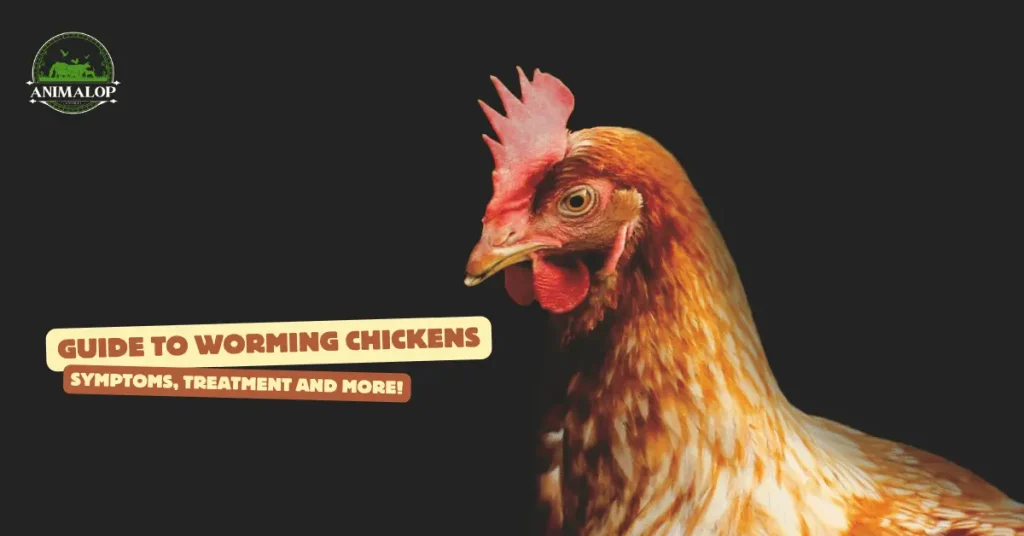
Types Of Worms
There are lots of different worms that can bother chickens. The ones you’ll hear about the most include:
- Threadworm (also called hairworm)
- Roundworm
- Caecal Worm
- Tapeworm
There’s also something called coccidia. It’s another chicken parasite that hangs out in the intestines and can sometimes act like a worm if it’s not too severe.
How Do Chickens Get Worms?
Chickens can get worms mainly from the stuff they eat. This includes bugs with worms in them, worm eggs or baby worms on their food, or poop from another bird that has worms.
A healthy chicken can handle having a worm. But if they’re weak or stressed out, worms can spread fast, making them sick or even causing death.
The types of worms that chickens can get include caecal worms, gapeworms, gizzard worms, roundworms, and tapeworms.
Symptoms Of Worming Chickens
If your chickens have worms, you might notice they’re eating a lot at first. This can trick you because healthy chickens also eat plenty!
But once they’re sick, they’re actually eating because the worms need food. Soon, they start acting tired, keep their tails down, and lose interest in food. Their combs (the red part on their heads) and wattles (the hanging bits under their beaks) will look pale and sad.
They might also have watery poop, become anemic (which means their blood is weak), have pale egg yolks, or stop laying eggs entirely. At this stage, I’d definitely take my chicken to the vet. The vet can figure out which worm is the problem and treat it right.
Don’t know what are the symptoms of sour crop? Check out this blog on signs of sour crops in chicken.
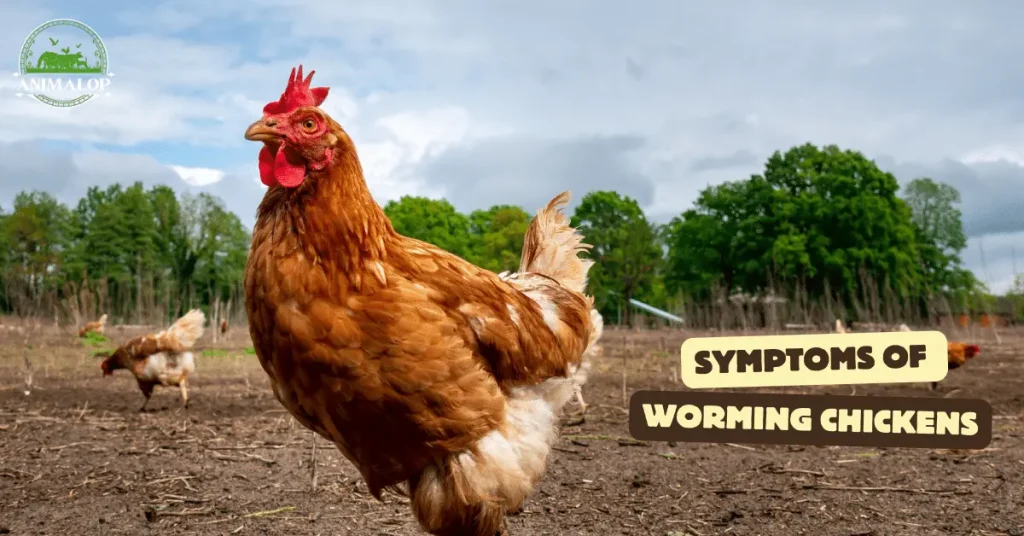
How to Prevent Worms In Chickens?
To stop worms in chickens, it’s key to keep them healthy and their immune systems strong. A healthy chicken can usually fight off a few worms. But if they get weak, worms can quickly become a big problem and make your chicken sick. Here are some simple ways to help our chicken pals:
Keep the coop clean
A tidy coop is super important. I’m not worried about the dust that chickens naturally make. I’m talking about making sure the coop stays dry and doing what you can to keep flies away since flies can bring worm eggs.
We use a deep litter method, which means we only have to give the coop a big clean a few times a year.
Use Coop Recuperate
Between big cleanings, we sprinkle Coop Recuperate on the shavings. It’s awesome because it keeps the coop dry and smells nice. It has natural oils and diatomaceous earth that keep unwanted bugs away.
We also make sure to clean the food and water dishes often. Moving where your chickens hang out can help too.
We keep ours in a fenced area, which seems to keep worms away. Sometimes, we even sprinkle Coop Recuperate in their outdoor space, especially in wet areas where worms like to hang out.
Chicken Elixir for daily health
We give our chickens Chicken Elixir in their water every day. It’s like a health booster that supports their digestion.
It’s got oregano oil, stuff that’s good for their gut, calcium, vitamins D and E, and things that help them stay hydrated. Keeping their digestion and immune system in good shape is crucial to protect them from worms.
Natural remedies: Some folks use garlic, pumpkin seeds, and apple cider vinegar to prevent worms. These are all-natural and great ways to keep your chickens in tip-top shape.
Basically, keeping everything clean and using some natural products can really help keep your chickens safe from worms.
How to Treat a Chicken With Worms
If you think your chicken has worms, it’s best to call a vet. I’ve never dealt with this myself, so I always suggest asking a professional. I prefer keeping my chickens healthy day-to-day rather than having to give them medicine that’s not natural.
But if there’s a real need for vet medicine, I’m okay with that too. When it comes to backyard chickens, we need all the help we can get, right?
I think advice from both poultry nutrition experts and vets is important. That’s why I like Strong Animals Chicken Essentials. They have a team of chicken experts who give great advice and help on how to care for our chickens.

If you’re worried your chicken might have worms, it’s a good idea to separate it from the rest to stop the worms from spreading and get in touch with a vet who knows about chickens.
FAQs
Final Thoughts
It’s clear that taking care of chickens means dealing with the not-so-fun stuff too, like worms. But, with some simple steps, you can keep your chickens healthy and worm-free.
Keeping the coop clean, using products like Coop Recuperate and Chicken Elixir, and trying natural remedies can make a big difference. And if your chicken does end up with worms, it’s best to talk to a vet to get them back on track. It’s all about doing a bit every day to keep those nasty worms away and your chickens happy and healthy.

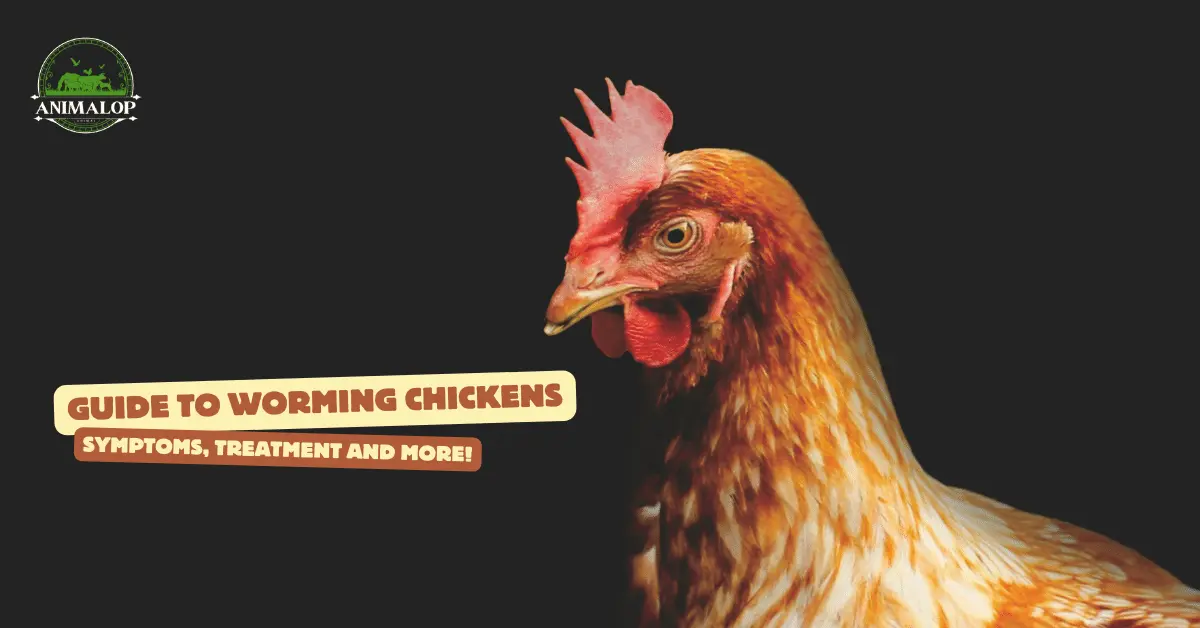
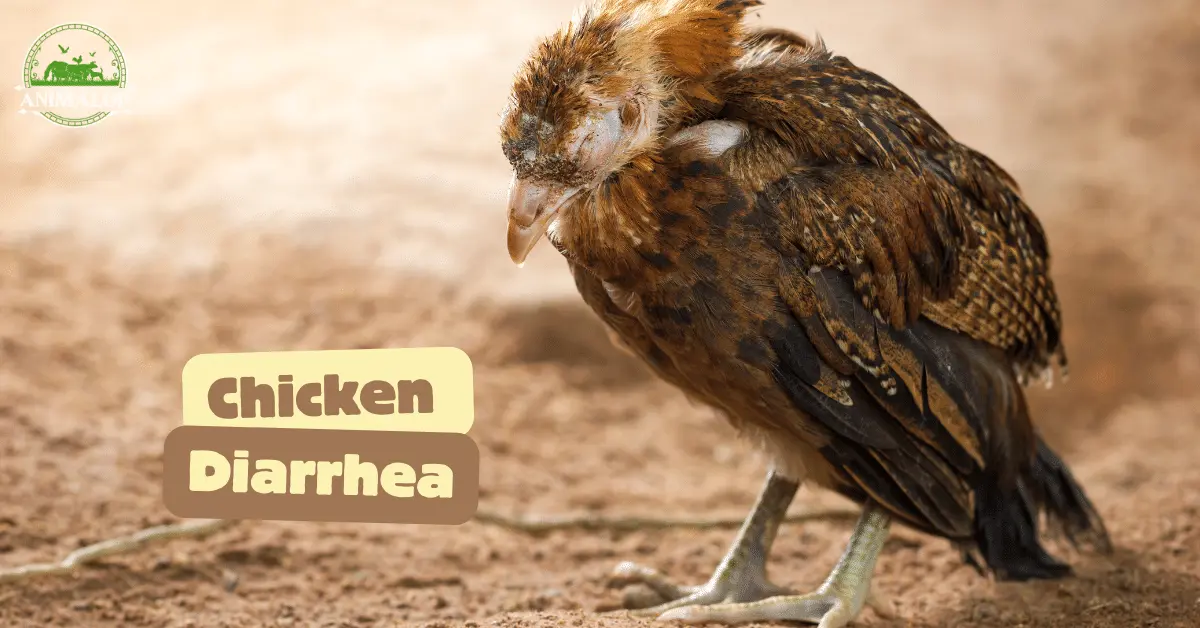
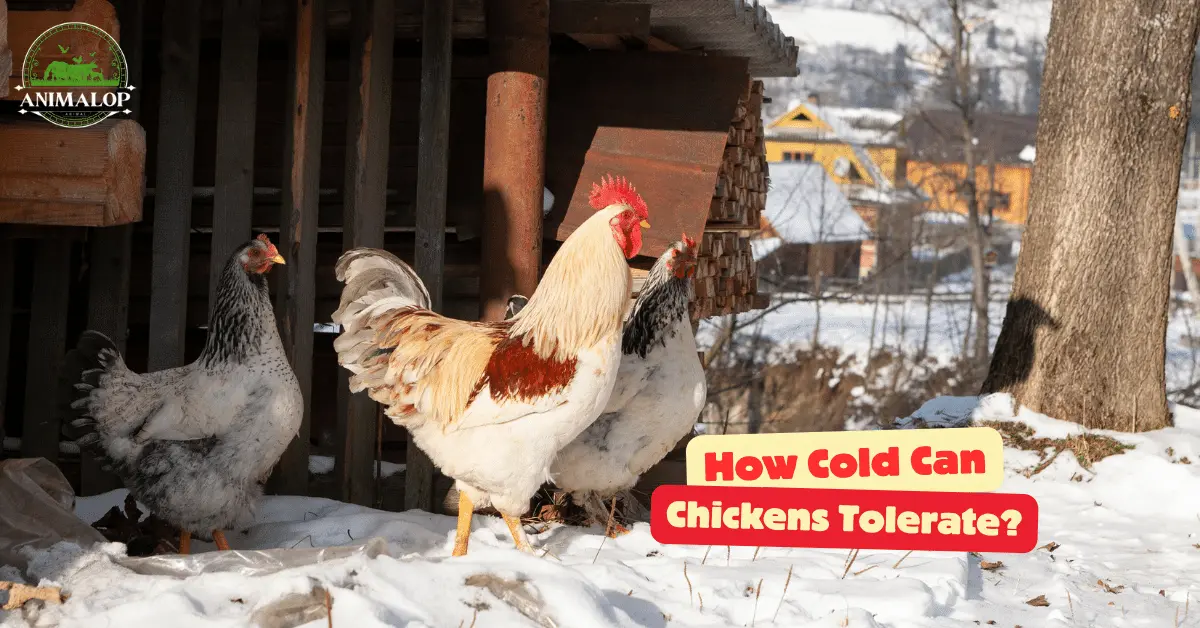
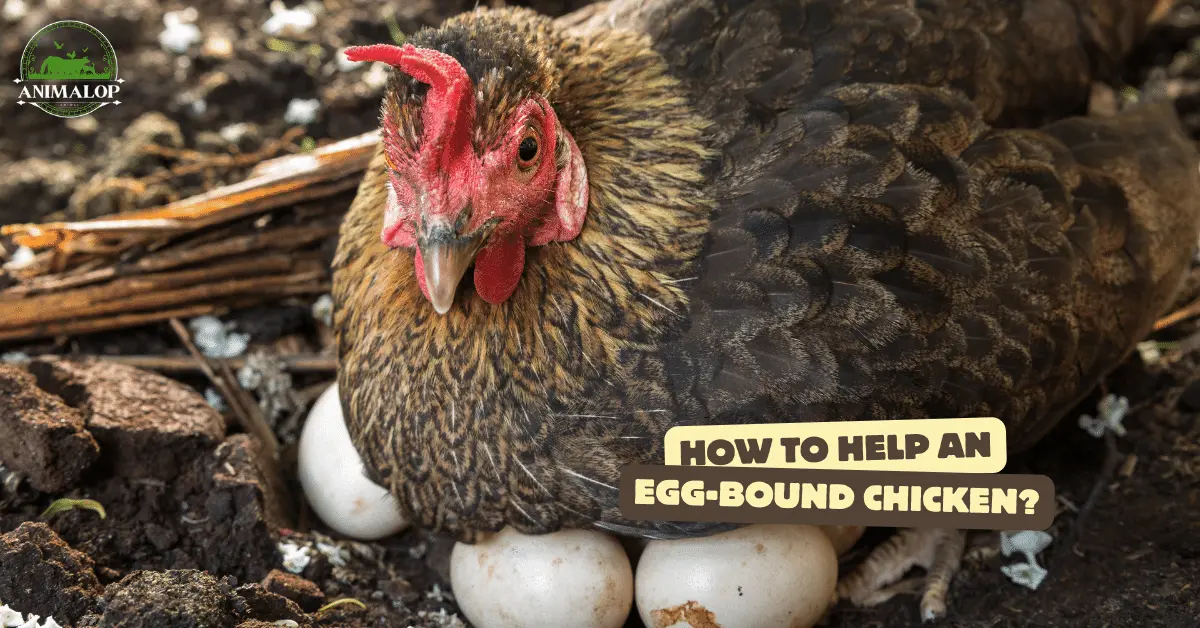
5 Comments on “Guide to Worming Chickens: Symptoms, Treatment and More!”